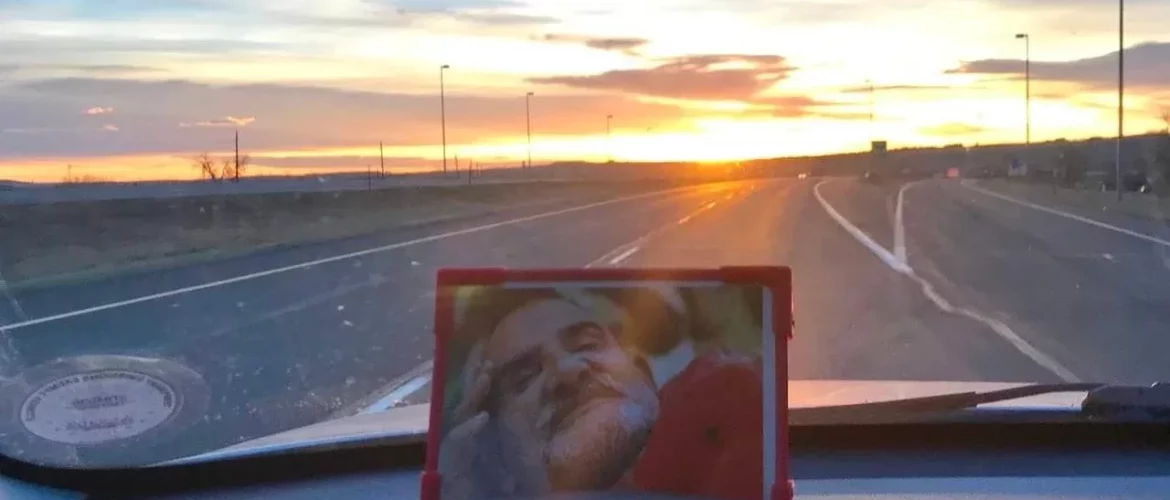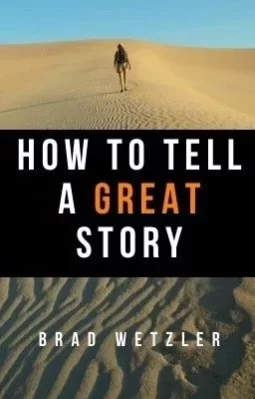Blog
How to Make Writing a Daily Spiritual Practice
- May 19, 2020
- Posted by: Brad Wetzler
- Category: Uncategorized

I once wrote a feature story for The New York Times Magazine about “the real Indiana Jones.” His name was , and I met him at a seaside bar on Oahu’s North Shore. I was riveted by his tales about his swashbuckling days searching Peru’s jungles for forgotten ruins of ancient civilizations. All of his stories were memorable, but one in particular lodged in my mind, and only recently did I grok what he meant. The story was about the time he and his support team became hopelessly lost in remote jungle, and he became convinced they would all die.
The Solution: Paying Attention to the Present Moment
“The jungle was impenetrable. During the day, we’d hack our way a few hundred yards, and at night, the jungle would grow back in. One morning, as I was drinking coffee and looking over my maps, I heard a loud ringing sound, like a bell. Curious, I got up and went to where I heard the ringing. I found a team member hacking at vines near the ground. I grabbed his machete, and I hacked as hard as I could until the thick, humid air rang out again. And again. I didn’t let my happiness show yet, but I knew we were saved. I ordered my entire team to work in that specific location.
Savoy’s face beamed as he told this story.
“I knew when I heard the ringing sound that we’d discovered an ancient Incan road. Brad, a road goes someplace. Even though the road hadn’t been used in centuries, I knew we could follow it and it would take us back to civilization. Life is like exploring. You’ve got to have a path. Without a path, we are lost.”
At the time, Savoy’s comments confused me. But now, nearly two decades later, I am crystal clear about Savoy’s message. I share this story with my book writing coaching clients when they tell me they are struggling with writing the middle of their books. Writing the middle chapters of a book is hard. It’s messy. You can lose faith. You can doubt that there’s anything worthwhile about your book at all. These voices are to be ignored. I tell my clients to lean on their writing practice. Write anyway. The clarity you once had about your book will return if you hold the course and have faith.
What’s your spiritual path?
What can you rely on when your own wits fail you? Maybe it’s a spiritual practice such as yoga or meditation. Maybe your morning walk or journaling is your Path. Whatever it is, lean on it. Going it alone without a path can leave you lost. Finding your path again after losing it is often the only way back out. If you don’t currently have a spiritual path, I invite you to explore, to play. Try the usual practices: prayer, yoga, meditation, walking in nature. Or make up your own practices. What activities help you to connect with your deepest self? What activities help you feel connected to your community and the Universe?
What is my spiritual path?
I begin each day with an hour of yoga and 20 minutes of meditation, followed by a writing/journaling practice. The yoga and meditation practices help me maintain physical and emotional well-being. My writing practice helps me understand what I really think. I also teach yoga and Yoga of Writing . I find that teaching yoga is also a spiritual practice. It requires constant attention to staying present in the moment. It also requires that I move out of my thinking brain and speak and act more from my body and heart. What do I mean? When you teach yoga, you must focus on serving the students in the room. You must stay aware of what’s happening in front of you. The state of your students’ bodies and their overall experience. You can’t do this if you over-intellectualize. Teaching yoga reminds me that I can also live in my body and heart more in other areas of my life, including my own writing.
What practices do you lean on? Write a comment to this blog post and let me know.
A former senior editor and contributing writer at Outside magazine, Brad Wetzler is an author, journalist, travel writer, book writing coach, and yoga instructor. His book, Real Mosquitoes Don’t Eat Meat, was published by W.W. Norton. His nonfiction writing has appeared in The New York Times Magazine and Book Review, GQ, Wired, Men’s Journal, National Geographic, George, Travel + Leisure, Thrive Global, and Outside. He coaches up-and-coming authors to write and successfully publish their books. For your free 30-minute phone consult, email Brad at [email protected]

